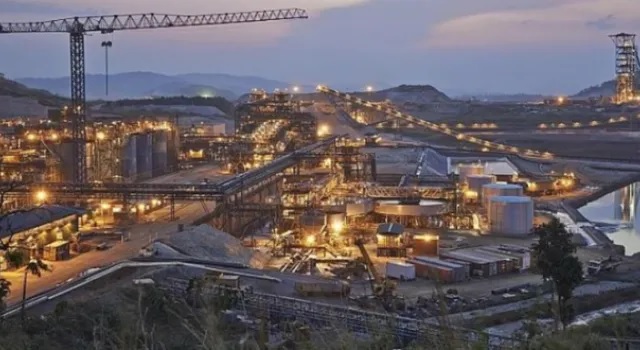Huayou Cobalt bows to the pressure on the use of child labor in the DRC’s informal mining sector
China’s largest cobalt producer must stop buying from individuals in the Democratic Republic of the Congo, under pressure from customers and advocacy groups involved in child labor in the country’s informal mining sector.
Huayou Cobalt, one of the world’s leading suppliers of metal used in batteries for electric cars and mobile devices, has been the subject of increasing scrutiny in recent years regarding human rights violations in the DRC, which represent more than two thirds of world production.
In December, he was appointed alongside technology companies, including Apple, Dell and Microsoft, in an American class action filed on behalf of families of children killed or injured during cobalt mining in the country. from Central Africa.
Legal filing in Washington by International Rights Advocates alleged that Huayou plays “a major role in managing the purchase of cobalt from minors. . . who are forced to work in very dangerous conditions. “
Huayou said it has removed child labor from its supply chain and is working to help formalize small-scale mining in the Congo by working to improve safety and better trace the cobalt.
But pressure from the company’s customers following the lawsuit led it to completely stop buying from so-called artisanal miners, according to people familiar with the matter.
The spread of Covid-19 in the DRC and the drop in cobalt prices have also led to a reduction in the supply of cobalt from individual miners, residents said.
Huayou, listed in Shanghai, is a key supplier to the electric vehicle industry, supplying cobalt to battery manufacturers LG Chem in South Korea and CATL in China, as well as Chinese manufacturer BYD and Germany Volkswagen.
Most of the DRC’s cobalt is shipped to China for refining and processing. Up to 20% of its production comes from individual miners, who dig the metal by hand without security protection.
Despite the decline, Huayou aims to produce 30,000 tonnes of cobalt this year, mainly from its industrial mines in the DRC but also by recycling used batteries. It is also seeking to raise 6.25 billion Rmb (870 million dollars) through a private placement of shares to increase nickel production in Indonesia.
Over the past year, Huayou has worked with Berlin-based auditing company RCS Global and automaker Volvo to improve monitoring of conditions at artisanal mining sites in the DRC, to prevent accidents and fatalities.
However, Mark Dummett, director of security and human rights affairs at Amnesty, warned of the unintended consequences of the company’s decision to stop buying from individual minors.
“Artisanal mining is a lifeline for millions of poor people in the DRC,” he said. “We have to see companies working with the authorities to formalize it – make it safer, remove the children, offer minors a fair price.” By refusing to buy from artisanal miners, Huayou risks worsening the situation of these miners, not improving it. “
Henry Sanderson
Financial times

 Navigate to the basic version of congovirtuel
Navigate to the basic version of congovirtuel List of ethnic groups and tribes of the DRC
List of ethnic groups and tribes of the DRC General directory of companies
General directory of companies List of Congolese universities
List of Congolese universities